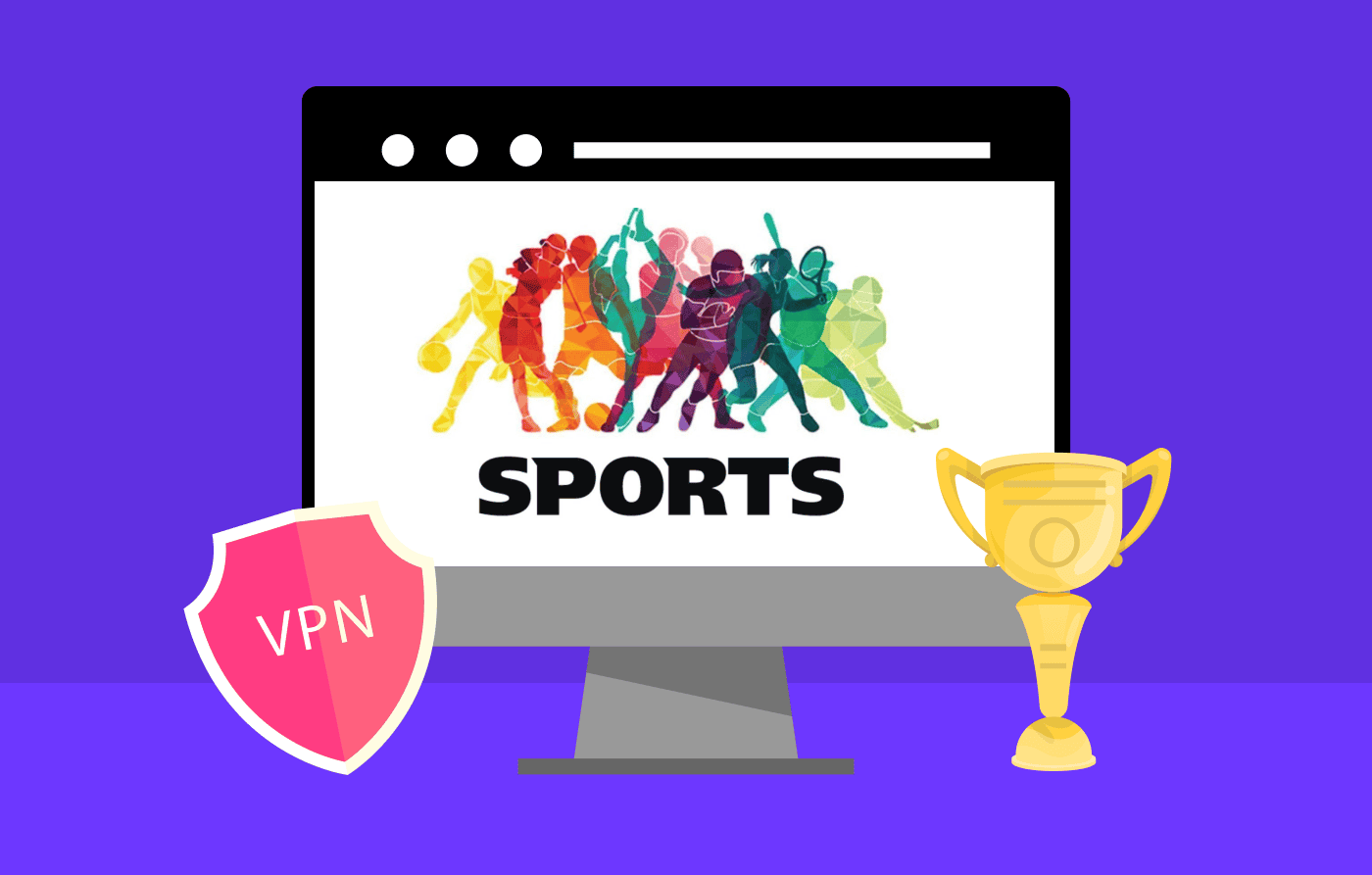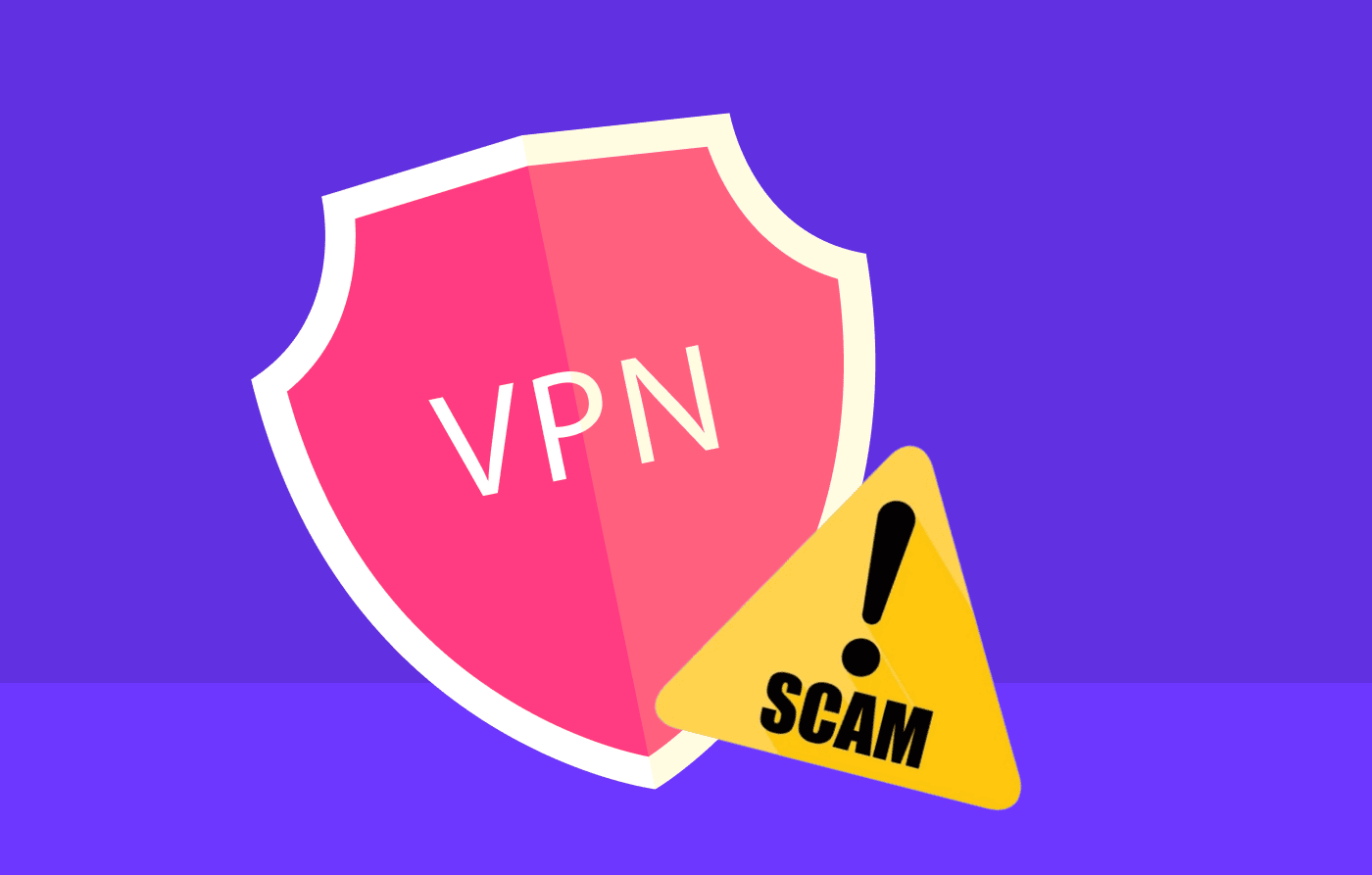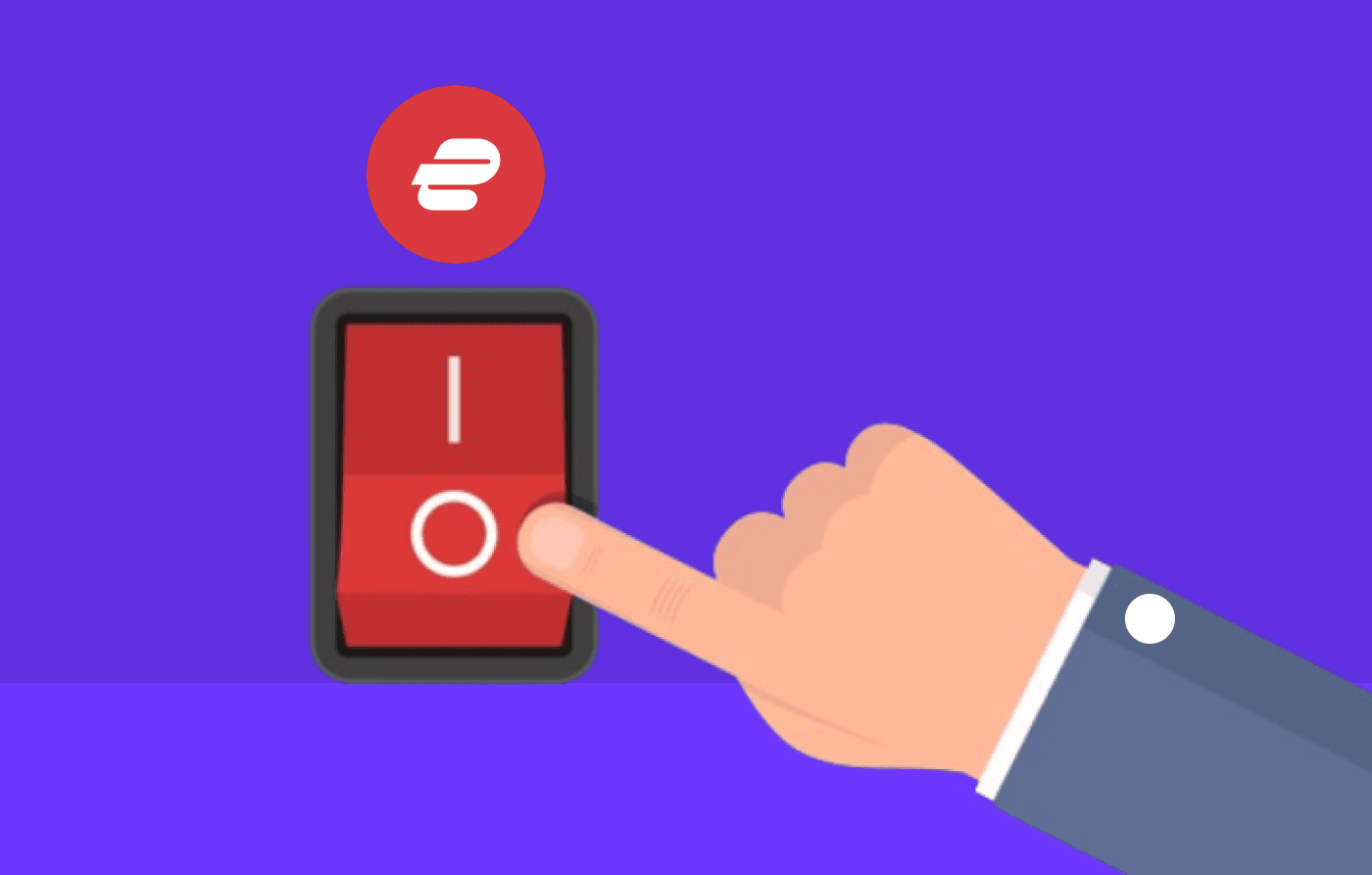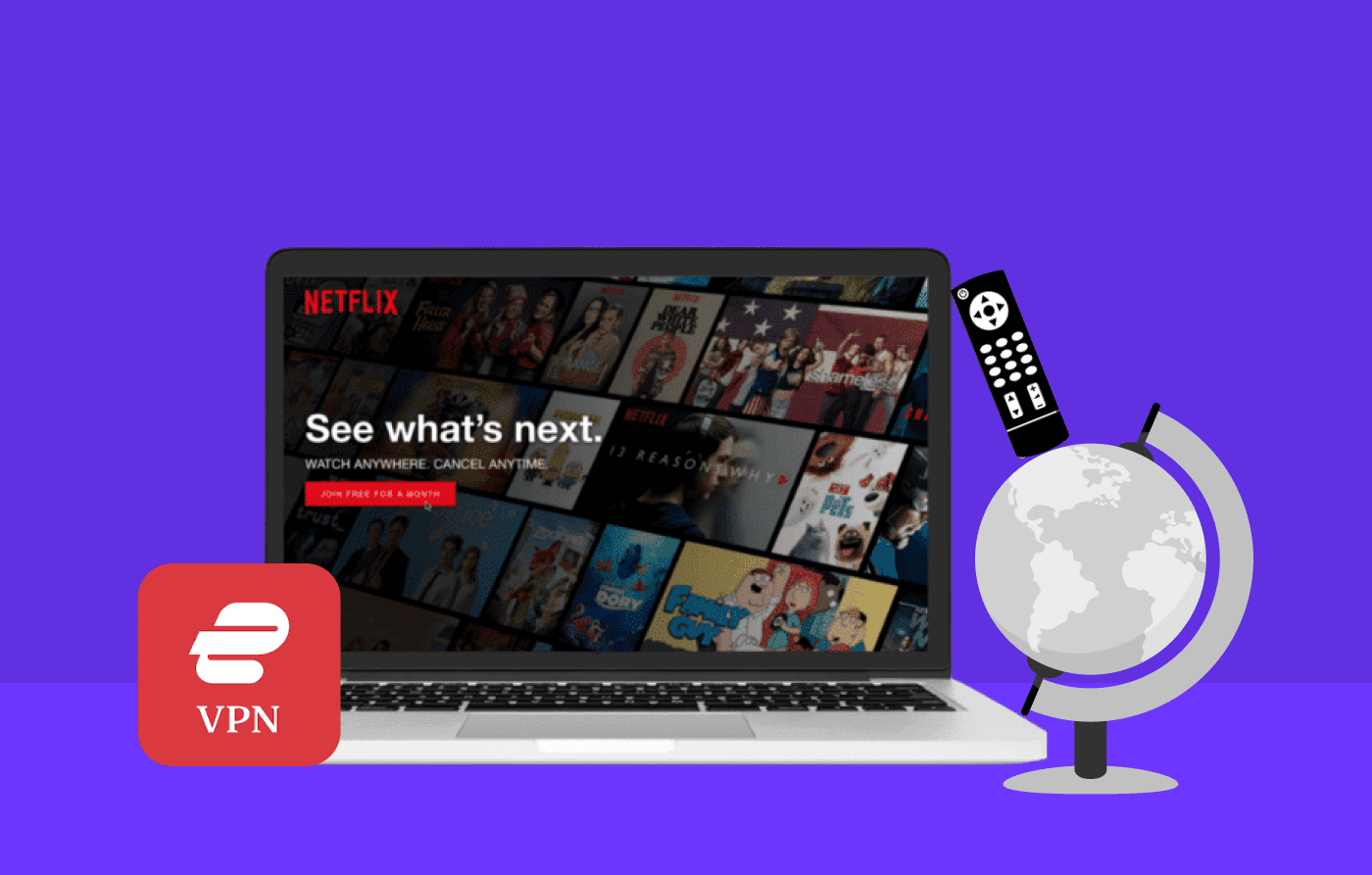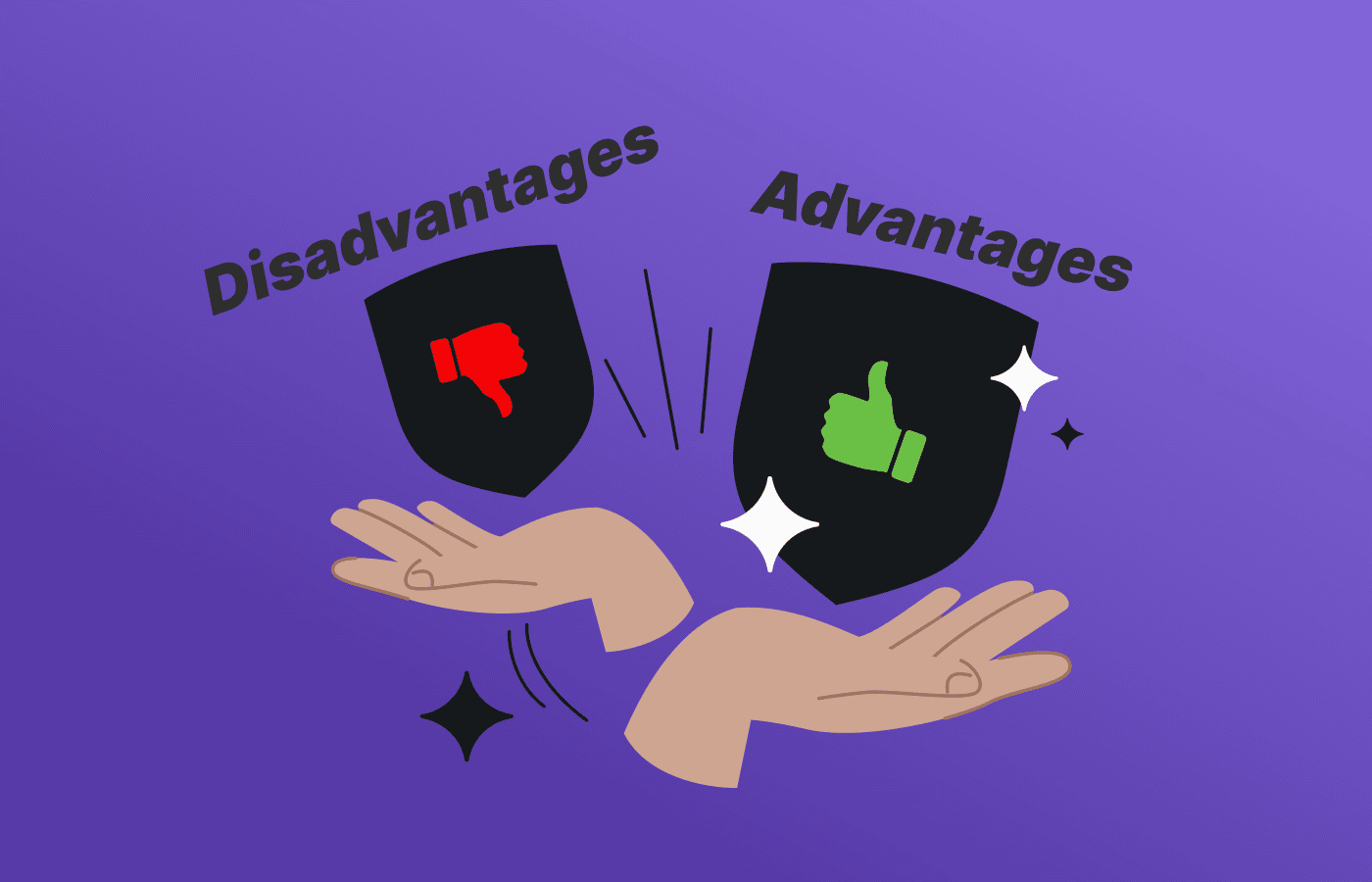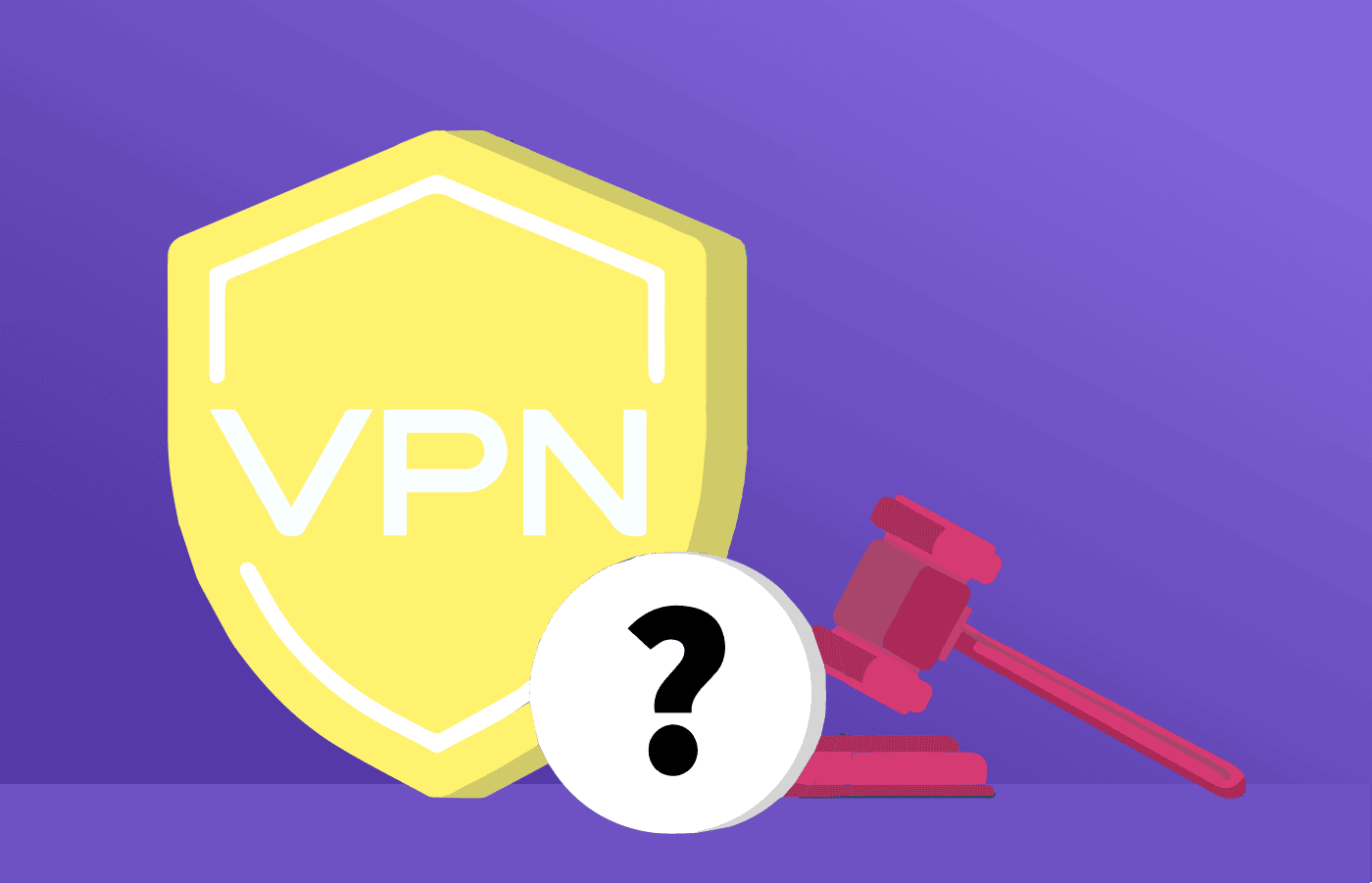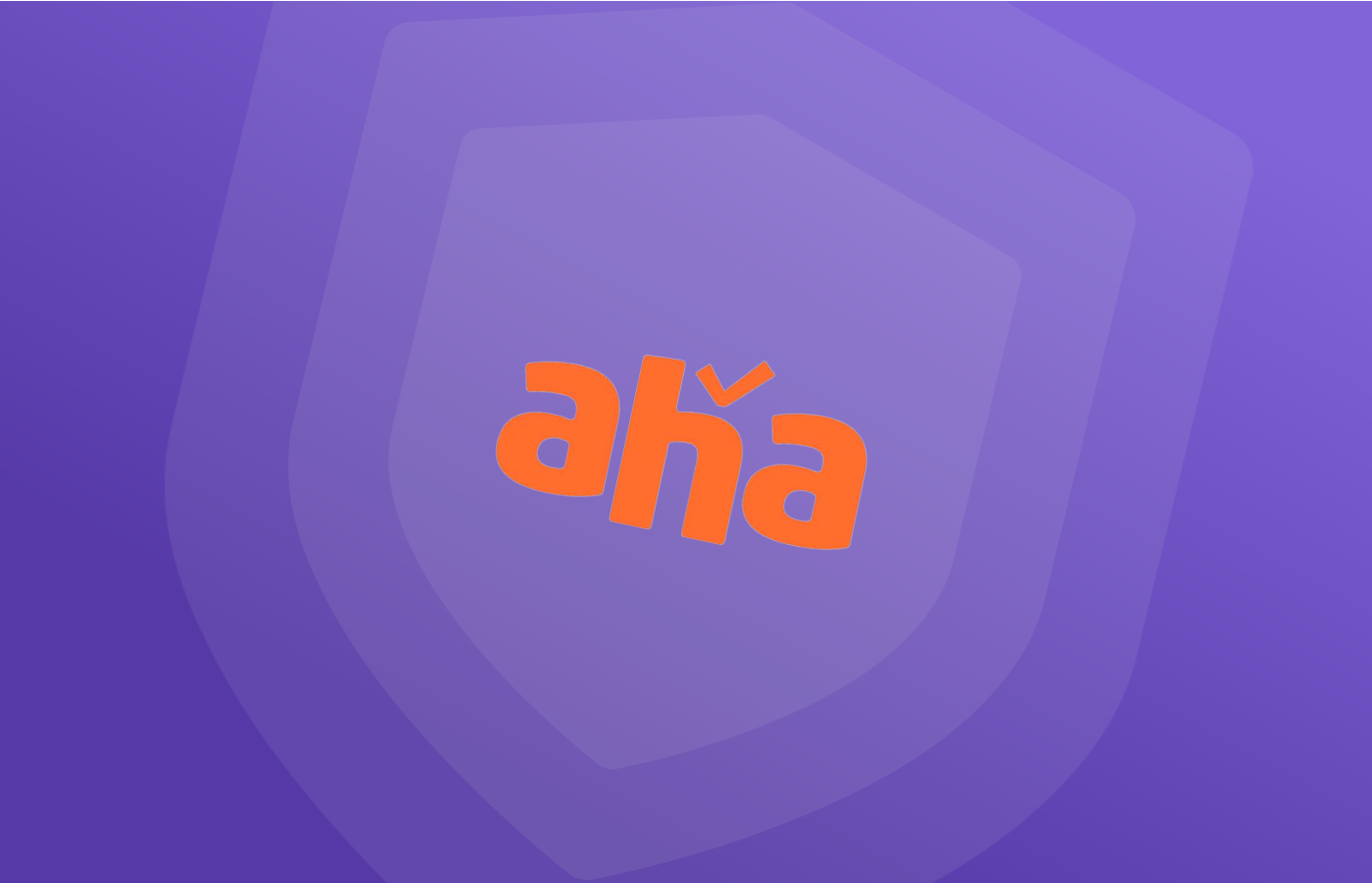Security and privacy issues are more important than ever today. A virtual private network (VPN) is an effective tool for achieving this. With a VPN, you can encrypt your internet connection, hide your IP address, and browse the web anonymously.
Many VPN options are available today, offering different features and prices. Some VPNs are free, but paid ones usually perform better and are more secure.
However, choosing the right one can be daunting, with numerous VPN services available. This article will explain the factors to consider when selecting the right VPN service for your needs.
How to Choose the Right VPN – Quick Guide
Choosing the best VPN for your requirements necessitates careful evaluation of several variables. Here’s a guide to assist you in making a wise choice:
- Purpose of Use: Analyze your VPN needs. Is it for security, privacy, getting around geo-restrictions, or all these combined?
- Logging Policy: Search for a VPN supplier that adheres to a stringent no-logs policy. In other words, choose a VPN provider that doesn’t track or record your internet activities.
- Jurisdiction: Consider the jurisdiction of a VPN provider. Certain countries have data retention laws; others may have no privacy laws.
- Security Protocols: Ensure the VPN securely transmits data with strong encryption. Such encryption algorithms can be WireGuard, IKEv2/IPsec or OpenVPN.
- Server Locations: Choose a VPN with servers in the relevant areas to your needs. Make sure the country of your interest has servers within the VPN.
- Connection Speed: Evaluate the VPN’s speed and effectiveness. Selecting a VPN with the lowest speed impact is important because some VPNs can slow down your internet connection.
- Device Compatibility: Ensure the VPN is compatible with all devices you connect. Such devices include Windows, Mac OS, iOS, and Android applications.
- Simultaneous Connections: Consider the number of connections the VPN can make simultaneously. Some VPNs may allow multiple connections with a single account if you use different devices.
- Kill Switch: Search for a VPN with a kill switch. This feature terminates your internet when the VPN connection fails.
- Customer Support: Quality customer service is mandatory. Make sure that a responsive VPN provider addresses their customers through several avenues.
- Trial Period or Money-back Guarantee: Selecting a VPN with either money returned guarantee or trial time is important. If you do not like the service provided, then try it and get your money back.
- Price: Review different packages along with long-term subscriptions to save money. Avoid the free VPNs that have so many limits and might expose one’s data privacy.
- Privacy Features: As for further security, try to find more built-in privacy measures support. These may include VPN tunnelling, DNS leakage protection and multi-path connections.
- Reputation and Reviews: To ensure the reputation and functioning of the VPN, have a look at the customer reviews.
- Updates and Maintenance: Select a VPN service provider that upgrades its software frequently. Such VPNs fix security flaws and guarantee that they work with the newest devices.
Exploring VPN Services: Unraveling the Concept of VPN
Virtual Private Networks (VPNs) are a technology that has grown in popularity over time. With this encrypted connection, you can securely access the Internet. A VPN routes all your internet traffic via a server by creating a robust tunnel between your device and the Internet. This server mediates between your device and the websites or services you visit online.
Due to frequent security flaws and susceptibility to cyberattacks, public Wi-Fi networks are a great place to use VPNs. Even when utilizing open Wi-Fi hotspots, you can be sure that your internet connection is private and safe with a VPN.
How VPNs Differ From Each Other
When choosing a VPN, users must consider the major differences between different VPNs.
1. Encryption Methods and Security Protocols
The VPN provider can use various encryption algorithms and protocols. Some VPNs use proprietary or less secure protocols, while others use common ones such as OpenVPN, IKEv2/IPsec, or WireGuard. Opting for a VPN with effective encryption that provides data safety is crucial.
2. Servers
VPN companies have a varying distribution of servers worldwide. Select the VPN provider with a vast distributed server array. It will facilitate better and more rapid connections or access to data from specific areas.
3. Speed
VPNs on internet speed are situation-dependent. Some service providers can experience more apparent performance losses, while others prefer fast connections. It makes them suited for online gaming and streaming. Testing and user feedback are methods of evaluating the efficiency of a VPN.
4. Compatibility
The number of devices and operating systems that VPNs support varies. Compatibility with less common devices, including routers or smart TVs, can vary. Most VPNs offer apps for popular platforms like Windows, Mac, iOS, and Android.
5. Simultaneous Connections
A VPN may provide a different amount of simultaneous connections. Some providers may impose limits on simultaneous connections. Besides, some might let users with many devices connect to a single account.
6. Kill Switch and Leak Protection
VPNs’ security measures can differ in degree. Important security features include a kill switch and DNS leak protection. The efficiency of a VPN in offering these functions varies.
7. Trial Periods and Refund Policies
Different VPNs provide different trial times, money-back guarantees, and terms and conditions. Some VPN providers have stringent return policies. Besides, some let users use the service risk-free for a predetermined time.
Why Is it Necessary to Use a VPN
When you connect to the internet without a VPN, your IP address is visible to anyone you communicate with or any websites you visit. This IP address can identify your physical location and track your browsing activity. This is where a VPN comes in handy. It ensures privacy and anonymity when online.
A VPN shields your IP address by assigning you a new IP from its server location. It also encrypts all your internet traffic so no one can spy on the sites you visit or the information you send and receive. With a VPN, your online activities and digital footprint are kept private from your Internet Service Provider, hackers on unsecured networks, and websites using tracking tools.
Another key reason to use a VPN is to access content from anywhere worldwide. Due to licensing agreements, many online services and websites restrict their content based on geo-location. It allows you to override geographic restrictions and access a whole world of unblocked content from anywhere.
The Top Reasons People Rely on VPNs
It is easy to list several remarkable reasons for using virtual private networks (VPNs). Privacy and anonymity are among the biggest drivers for VPN usage. The user’s internet traffic is encrypted and routed through the VPN server when connected to a VPN. They also lower the tracking ability of websites and other online resources to monitor users’ internet activities.
Accessing geo-restricted content is a big draw for many users. Major streaming services like Netflix, Hulu, and BBC iPlayer restrict their libraries by geographical location due to licensing limitations. With a VPN, users can select a server location in the country they want to access.
In conclusion, privacy, security, accessibility, and freedom of connectivity are the core drivers behind the widespread adoption of VPN services. Whether it is bypassing censorship, avoiding surveillance, or simply accessing location-restricted streaming library from anywhere, VPNs provide invaluable online opportunities.
A Step-by-Step Process for Choosing a VPN for Your Needs
Maintaining privacy and security online is increasingly important as our digital lives expand. With so much data being transmitted, it helps to evaluate your needs and the tools at your disposal periodically.
The first step is to examine how you use the Internet and what matters most. Do you regularly access sensitive accounts or personal information online? Do location restrictions ever prevent you from accessing certain content or services? Understanding your priorities gives you a framework for deciding if a VPN is worthwhile.
Are you Sharing Private Information Online?
Consider what you do online and see if you send sensitive information. Sensitive data is any information that could compromise your security or privacy if intercepted. It may include financial information, passwords, private messages, or any other type of information.
Consider when you performed online banking or disclosed personal information on websites. Understand that these actions entail sharing private information. They could result in identity theft, financial fraud, or illegal access to your accounts if hostile parties intercept them.
A Virtual Private Network (VPN) becomes useful in these situations. It encrypts your internet traffic and protects your information from potential hackers. You can increase the security of your online activities. Besides, using a VPN can lower the possibility of unauthorized access to critical data. This is particularly important when using public networks or making online transactions.
Do Geo-restrictions Affect You?
Consider whether geo-restrictions make it difficult for you to access internet material. Geo-restrictions refer to limitations placed on specific websites, streaming services, or online platforms. These limitations prohibit users from accessing particular content because of where they are.
Remember when geo-limitations prevented you from using specific websites or seeing specific movies? A VPN can provide an alternative if these limitations negatively affect your internet experience. It connects you to servers in many areas, hiding your location and enabling access to geo-restricted content. This makes a virtual private network (VPN) a valuable tool for people looking to get around geo-restrictions.
Concerned About Your Online Privacy?
Evaluating your comfort level with online privacy requires considering the personal information you disclose. It also involves considering the amount of tracking you are willing to use.
Consider your online activities, such as the websites you visit and the applications you download. Consider the ubiquity of targeted advertising and the possibility that businesses or advertisers would gather and use your data for profiling.
Using a VPN becomes relevant if you find these practices intrusive or desire better privacy. A VPN lessens the capacity of outside parties to track your online activities. It hides your IP address and encrypts your internet traffic.
Online Censorship and Surveillance
An in-depth analysis of your area’s digital landscape and legal system is necessary to determine whether you live where internet censorship or surveillance is common. Consider the internet restrictions imposed by your government or local authorities. Look for issues you may have accessing specific websites or online content.
Examine the extent of any potential government monitoring online behaviour in your area. If you find that you have less freedom online or that someone is watching your activity, a VPN is helpful.
Connect to Public Wi-Fi Networks
Consider how frequently you use open Wi-Fi networks, including those in coffee shops, airports, and other public areas. While public Wi-Fi networks are useful for remaining connected when traveling, they don’t have the same security features as private networks. Knowing the possible security dangers if you use public Wi-Fi is important.
As a result, if you use public Wi-Fi, a VPN might be a useful tool to guarantee a more private and secure online experience.
Less Secure Devices or Public Computers
Consider whether you usually do your online business on public computers or less secured devices. Less secure devices may jeopardize your data security.
These devices include shared PCs or those without current security software. Public computers, such as those in libraries, are not properly protected against malware or keyloggers.
A VPN becomes invaluable if you use such devices to strengthen online security. It offers extra security by encrypting your internet traffic, making it much harder for potential attackers to intercept or corrupt your data.
Methodology to Choose the Best VPN Services – Detailed Guide
Selecting the best VPN requires considering performance and privacy. If you comprehend these factors, you can make an informed choice that meets your needs.
1. Purpose of Use
The purpose of using a VPN should impact your decision-making. Regarding privacy, look for a VPN with a strict no-logs policy and robust encryption. These features ensure that no one tracks or records what you do online.
However, the number and location of servers become essential to circumvent geo-restrictions. Large server networks can help you access content from particular areas.
2. Logging policy
One of the most important aspects of a VPN’s online privacy protection is its logging policy. A no-logs policy indicates that the VPN operator does not record your online actions, including the websites you browse and the files you download.
This commitment to not recording user data is necessary to protect user anonymity and prevent any possible disclosure of private information. Examine the provider’s privacy policy before using a VPN to ensure their promise of having no logs.
3. Jurisdiction
A VPN provider’s home jurisdiction may greatly impact their users’ privacy. Data retention regulations in many countries are rigorous. These regulations require organizations to keep user data on file for a predetermined time. Some countries, however, might have laws that are more protective of privacy.
Choosing a VPN service based in a country with robust privacy regulations can help you feel more confident. You can understand the provider’s dedication to protecting your information.
4. Security protocols
Security procedures govern data encryption and transfer across VPNs. Using a VPN with strong encryption methods like OpenVPN, IKEv2/IPsec, or WireGuard is crucial. These protocols ensure that your data is secure and shielded from unauthorized access.
5. Server locations
A VPN’s ability to work depends critically on the number and location of its servers. Ensure the VPN has servers in the regions where you want to access content. Besides, it also generally improves performance and speeds up connections.
Furthermore, having servers spread across several locations can help you spread the load. It also provides you with extra options for secure connections.
6. Connection speed
VPNs’ encryption and routing procedures occasionally decrease internet speed. Thus, selecting a VPN with the least negative effect on your connection speed is crucial. Certain VPNs use cutting-edge technologies and optimized server networks to help them deliver faster speeds.
7. Device compatibility
For a smooth and integrated experience, using a VPN on all your devices is convenient. Ensure the VPN works with the devices and OS you frequently use. For instance, Linux, Mac, iOS, Android, and Windows.
Many VPN service providers offer dedicated apps for different platforms. These apps make setting up and using the VPN on your chosen devices easier. Smart TVs, routers, and other gadgets, in addition to PCs and phones, are compatible.
8. Simultaneous connections
A VPN’s greatest number of simultaneous connections is also crucial. You can use many devices or share the membership with family members. Certain VPN providers allow for greater customization, while others limit simultaneous connections.
Choose a VPN with enough simultaneous connections. This ensures that you can lock down every device without issues. Even unplugging one device to plug in another won’t be necessary.
9. Kill switch
A kill switch is an important security characteristic that ensures your online activities are secure. This feature automatically cuts off your internet connection when the VPN drops and prevents the transmission of unencrypted data across the network.
Ensure the VPN has a kill switch and know its operation before selecting it. Some VPNs offer additional customizable options to configure the kill switch according to your liking and preferences.
10. Customer service
Reliable and attentive customer service is essential when using a VPN. In case of technical inconveniences, dependable support at the appropriate levels will make your encounter optimal. You can inquire about the service or ask for assistance with the setup.
Reviews and testimonials from other users will give you an insight into a VPN provider’s quality of customer service.
11. Trial period or money-back guarantee
To some extent, a VPN is a big decision; therefore, taking the service for a trial run before sealing it with membership would help. Look for VPN services with a money-back guarantee policy or offers of trial periods. This eliminates the need for financial commitments while testing the VPN’s functionality.
Assess whether or not the VPN matches your needs in terms of speed and reliability. Due to the money-back guarantee, you can ask for a refund and explore other options. You can do this if you have a problem or determine the VPN is inappropriate.
12. Price
Pricing is a good factor to consider when choosing a VPN. It becomes important to compare the weight of that value with the provision parameters and quality of service. Compare pricing packages of different VPN providers. Look at each subscription’s capabilities, server sites, and simultaneous connections.
13. Privacy features
Some VPNs have more privacy-focused features than standard ones. They may include split tunneling, which allows you to decide what traffic will pass through the VPN and what won’t.
Another important feature is DNS leak blocking. It prevents web requests to ask for data from DNS by an Internet service provider. Some VPNs also come with multi-hop connections to enhance security. They send your traffic through several servers.
14. Reputation and reviews
Reputation and reviews are among the most important indicators of a VPN provider’s reliability and effectiveness. Before enrolling in a VPN service, read reviews from authentic sources.
Look at how long the VPN provider has been in operation. Commendable older companies exist and are often more trustworthy than their younger competitors.
15. Updates and maintenance
Select a VPN service provider that updates its software frequently. Make sure it promptly resolves security issues and adapts to the constantly evolving internet landscape.
Regular updates also show a commitment to improving user experience and fixing any possible issues. Check the provider’s response to security issues and the regularity of their upgrades. In addition to providing a haven, a well-maintained VPN ensures you can access the newest features.
Top Recommended VPN Services for Enhanced Online Security
1. ExpressVPN
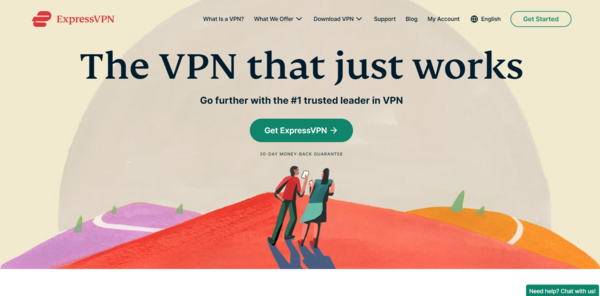
Key Features
- Boasts 3,000+ servers in more than 94 countries for fast and reliable streaming
- Provides a secure connection with AES 256-bit encryption
- Allows up to 5 simultaneous connections
- Offers 24/7 customer support
- Provides 100% refund if dissatisfied within 30 days
ExpressVPN stands out for the strength of its server infrastructure. This server network crosses many countries and enables users to have many link options. It is popular for its always high-speed connections. These high-speed links give it the best option for bandwidth-voracious streaming uses.
It utilizes military-grade encryption methods, such as OpenVPN, focusing on security. Its no-logs policy is extremely strict, thus showing its commitment to customer privacy. ExpressVPN guarantees users won’t have to worry about being watched online.
The service is even more notable for having a user-friendly interface. This UI makes utilizing a VPN simple and accessible and functions well on various devices.
2. NordVPN
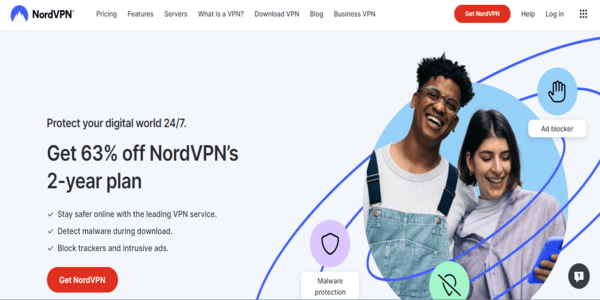
Key Features
- Offers a vast network of over 5,700 servers in 60 countries
- Has a strict no-logs policy for user privacy
- Provides reliable customer support 24/7
- Allows for up to six devices to connect simultaneously
- Offers a money-back guarantee of 30 days
One of NordVPN’s unique benefits is its Double VPN feature. This feature transfers user traffic to two servers for more privacy and security. The service has a large server network, which gives users unlimited possibilities for safe connections.
The VPN provides specialized servers for specific needs. This comprises P2P file-sharing servers and dedicated servers. The CyberSe function offers a supplemented protection level. It severs advertising and keeps hackers at bay online.
NordVPN’s strong no-logs policy once again confirms its commitment to customer privacy. This policy is in harmony with its robust security elements, which enable users to enjoy the benefits of multiple device synchronization and allow it to work on different digital systems.
3. ExtremeVPN
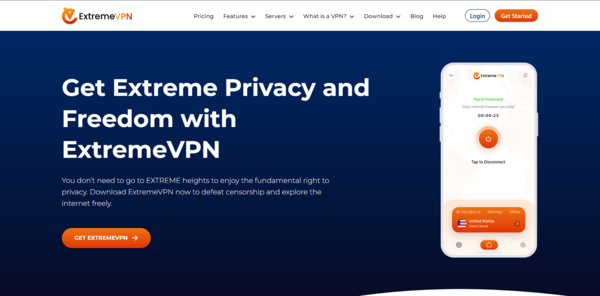
Key features
- Boasts 6,500 servers in over 78 countries worldwide
- Offers military-grade AES-256 encryption
- Has 24/7 customer support
- Supports a maximum of 5 active connections simultaneously
- Comes with a 30-day money-back guarantee
ExtremeVPN’s global network of optimized servers delivers industry-leading speeds. With dedicated IP addresses and optimized protocols, users experience an average 750Mbps connection speed regardless of location. This allows seamless HD streaming and fast downloads.
With over 6,500 global servers, users can access full streaming libraries and blocked websites in any country. Geographic spoofing allows for bypassing censorship and IP address tracking. The intuitive apps are compatible with all major platforms, including up to 5 devices simultaneously.
ExtremeVPN’s outstanding performance, security assurances, and excellent value make it one of the top-rated VPN choices today. The combination of features provides a seamless VPN experience.
Comparing the Top Recommended VPNs
| Features | ExpressVPN | NordVPN | ExtremeVPN |
|---|---|---|---|
| Server Locations | 3,000+ servers in 94 countries | 24/7 live chat and email support | 6,500+ servers in 78+ countries |
| Connection Speed | High-speed connection | Fast and reliable connection | Dependable performance |
| Simultaneous Connections | Upto 5 devices | Up to 6 devices | Up to 10 devices |
| Kill Switch | Yes | Yes | Yes |
| Customer Support | 24/7 live chat and email support | 24/7 live chat and email support | Email support |
| Devices Compatibility | Wide compatibility across platforms | Compatibility across various devices | Support for major platforms |
| Logging Policy | No-logs policy | Strict no-logs policy | No-logs policy |
| Security Protocols | OpenVPN, IKEv2/IPsec, Lightway | OpenVPN, IKEv2/IPsec, WireGuard | OpenVPN, IKEv2/IPsec |
| Price | Slightly higher cost | Competitive pricing plans | Affordable pricing options |
Conclusion
While choosing the best VPN can be challenging, given the many options available, reviewing your requirements and researching reliable services carefully will certainly pay off.
This detailed guide simplifies the decision by evaluating key factors that differentiate VPN performance and safety.
Though comparing VPNs requires effort, the peace of mind and security gained from choosing the right one make the research worthwhile.
FAQs
Therefore, choosing a dedicated server to connect through a VPN is usually beneficial. Moreover, do not miss the review of restrictions about torrenting that a provider conducts.
However, if you need added features, speeds, and better security than free VPNs, you are advised to buy a paid subscription.
Using a VPN on an open Wi-Fi network provides an opportunity to guarantee that it is strategic and won’t lead you to subtract value. They protect you from threats on the public web and encrypt your data. They also provide a safe connection that can be used for online shopping and banking.
Using a VPN is legal in the majority of countries. However, due to laws that protect the privacy of people and an attempt at monitoring information from governments in some countries, VPN use is forbidden or limited.
Even though a VPN is unnecessary, you can always have a private and secure internet connection with a specialized service. However, this is much more significant if you work or do online business with public WIFI.



















































































































































































